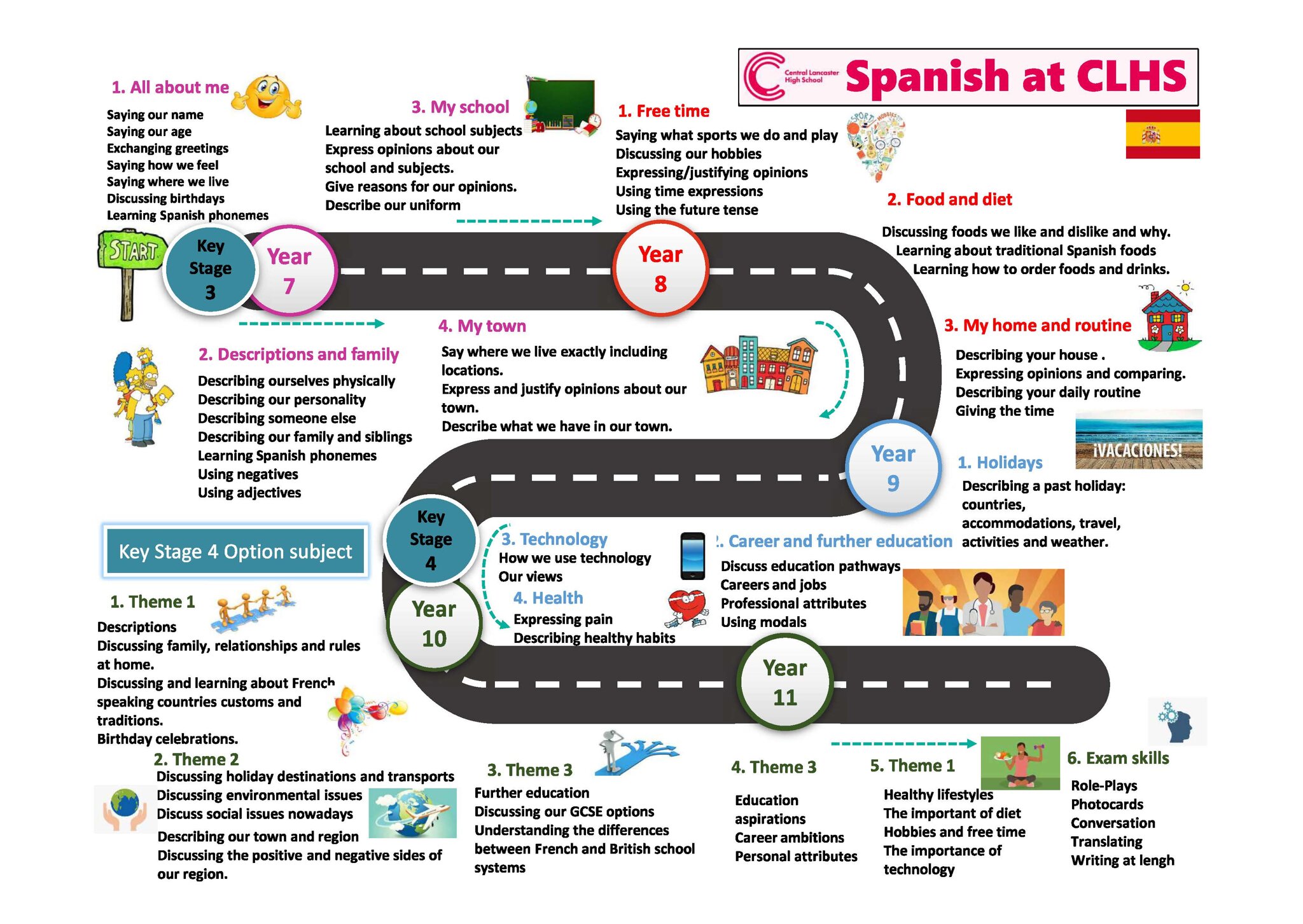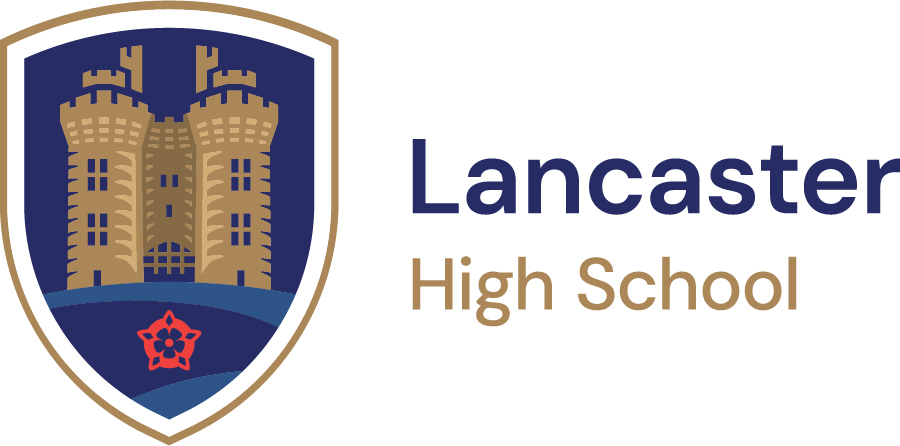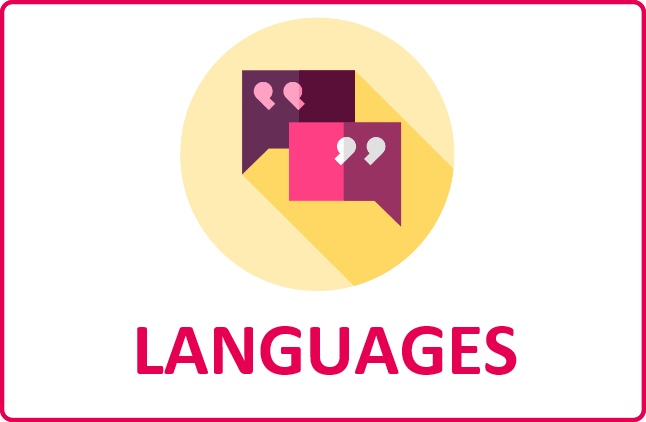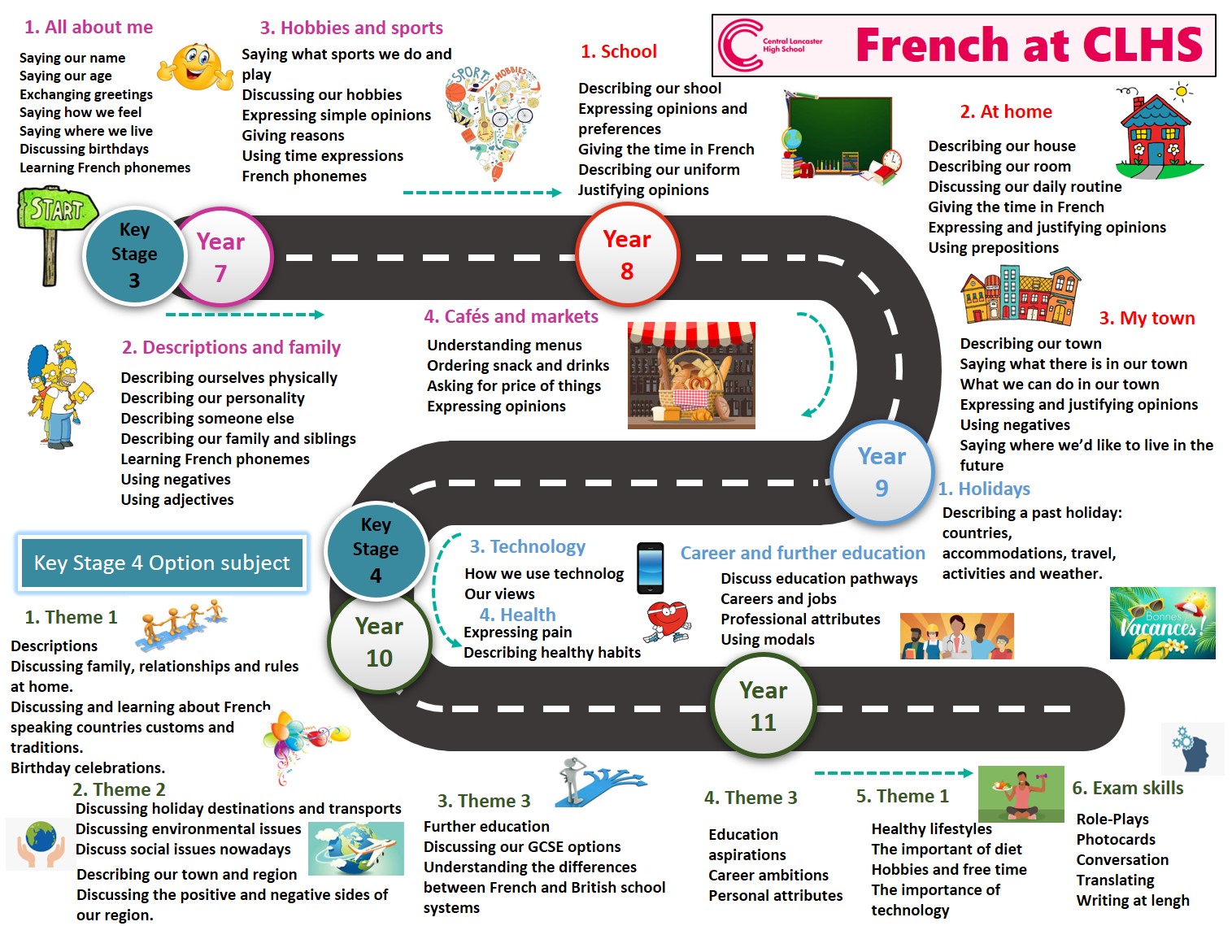“If you talk to a man in a language he understands, that goes to his head. If you talk to him in his language that goes to his heart.”
Nelson Mandela.
Subject Staff
| Name | Role | Contact |
|---|---|---|
| Miss Morel | Head of MFL | Contact |
| Mrs O'Hare | Classroom Teacher | Contact |
Our Intent:
Our aim is for students:
- To become confident and resilient learners who value the studying of a foreign language and rise to the challenge.
- To understand how language skills can help you secure a place in today’s competitive job market and global community.
- To look outside of their own community and be accepting of other cultures.
- To aspire to become exceptional linguists.
At Key Stage 3 we will:
- Build routines to embed solid grammatical foundations.
- Promote spontaneous use of French.
- Actively practise the skills of writing, speaking, reading and listening and promote high levels of literacy.
- Develop strategies to memorise and manipulate language effectively to support progress over time.
- Learn to express our thoughts with increased confidence.
At Key Stage 4 we will:
- Deepen our knowledge and application of grammar.
- Widen our range of vocabulary and language structures.
- Revisit high frequency vocabulary and ensure this knowledge is stored in long-term memory.
- Practise a range of GCSE style questions in speaking, writing, reading and listening to ensure students are well prepared for their GCSE examinations.
View French Curriculum - Roadmap Overview
KS3 overview of units:
| Term 1 Topics | Term 2 Topics | Term 3 Topics | Detailed Overview |
Curriculum Roadmap |
|
|---|---|---|---|---|---|
| Year 7 French | Introducing yourself My family Describing myself and others |
Free time: sports and hobbies Expressing opinions |
Food and drinks Ordering food and drinks from a café |
View Document | View Document |
| Year 8 French | My school: to describe our school; give and justify opinions, express preferences; to give the time. | My home and daily routine- describing our house and room, expressing opinions | My town- describing our town; expressing opinions; explaining what we can do. | View Document | View Document |
| Year 9 French | Holidays- describing a past holiday. Transport, weather, activities, accommodation | Education and career – describing future option and career choices; describing professional qualities | Healthy living – expressing pain, describing our diets; discussing the importance of a healthy diet. | View Document | View Document |

View Spanish Curriculum - Roadmap View
| Term 1 Topics | Term 2 Topics | Term 3 Topics | Detailed Overview | Curriculum Roadmap | |
| Year 7 Spanish | Introducing yourself My family Describing myself and others around me |
Free time: My school Describing our school, expressing opinions; comparing |
My town Describing our town, expressing our opinions |
View Document | View Document |
| Year 8 Spanish | Free time and hobbies, expressing opinions and comparing | Food and drinks, describing our home | Daily routine and festivals | View Document | View Document |
| Year 9 Spanish |
Sports and Hobbies Food and Drinks |
Home Daily Routines Holiday |
Technology | View Document | View Document |
Parents / carers can best support pupils by:
- Quizzing pupils when vocabulary learning homework has been set.
- Helping pupils practise their French spellings from memory.
- Speaking positively about the values of learning a foreign language.
- Looking through pupils’ books and ask them what they have studied.
Key Stage 4:
Qualification type, exam board and syllabus if applicable.
Specification: https://www.eduqas.co.uk/media/0gqg4xeh/eduqas-gcse-french-spec-from-2016-e.pdf
| Term 1 Topics | Term 2 Topics | Term 3 Topics | |
|---|---|---|---|
| Year 10 | Self and relationships Festivals and celebrations |
Holidays and tourism The environment Social issues |
Local area School life Further education |
| Year 11 |
Future career prospects |
Healthy living Diet Sports and hobbies |
GCSE preparation- retrieval/ practice papers |
Assessment:
| Paper 1 | Speaking | 7-9 minutes- Foundation 10-12 minutes- Higher |
25% |
| Paper 2 | Listening | 35 minutes-Foundation 45 minutes-Higher |
25% |
| Paper 3 | Reading | 1 hour- Foundation 1 hour 15 - Higher |
25% |
| Paper 4 | Writing | 1 hour 15- Foundation 1 hour 30- Higher |
25% |
Parents / carers can best support pupils by:
- Helping pupils practise their conversation tasks.
- Purchasing a mini whiteboard to help pupils practise their French spellings and regularly quiz them to aid recall.
Additional materials to support study and revision:
| Resource | Link |
|---|---|
| GCSE Pod | https://www.gcsepod.com |
| Quizlet | https://quizlet.com/en-gb |
| Carousel | https://www.carousel-learning.com |
| Word Reference | http://www.wordreference.com |
| Memrise | http://memrise.com |
| Linguascope | http://www.linguascope.com |
| Kahoot | https://kahoot.it/#/ |
| Eduqas- resources | http://www.eduqas.co.uk/qualifications/french/gcse/ |
| TaskMagic free software installation | http://www.mdlsoft.co.uk/downloads_homeuse.php |
| CGP Grammar revision book for French | CGP Grammar revision book for French |
| CGP French translation workbook | CGP French translation workbook |
| CGP French GCSE Exam Practice workbook | CGP French GCSE Exam Practice workbook |
| CGP complete revision book with tasks | CGP complete revision book with tasks |



